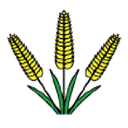Cognition and Learning
Infographic Video - Specific Learning Disabilities (SLD)
Information from the Special Educational Needs and Disability Code of Practice: 0 to 25 years
6.30 Support for learning difficulties may be required when children and young people learn at a slower pace than their peers, even with appropriate differentiation. Learning difficulties cover a wide range of needs, including moderate learning difficulties (MLD), severe learning difficulties (SLD), where children are likely to need support in all areas of the curriculum and associated difficulties with mobility and communication, through to profound and multiple learning difficulties (PMLD), where children are likely to have severe and complex learning difficulties as well as a physical disability or sensory impairment.
6.31 Specific learning difficulties (SpLD), affect one or more specific aspects of learning. This encompasses a range of conditions such as dyslexia, dyscalculia and dyspraxia.
How is this need identified?
Cognition and Learning
Specific Learning Difficulties (SpLD) is an umbrella term. Pupils with SpLD may have a particular difficulty in learning to read, write, spell or using numbers. Pupils may also have difficulties with short term memory, organisational skills, visual processing and coordination. Pupils with SpLD cover the whole ability range and the severity of their impairment varies widely. Examples of specific learning difficulties are:
* Dyslexia
* Dyspraxia/DCD
* Dyscalculia
